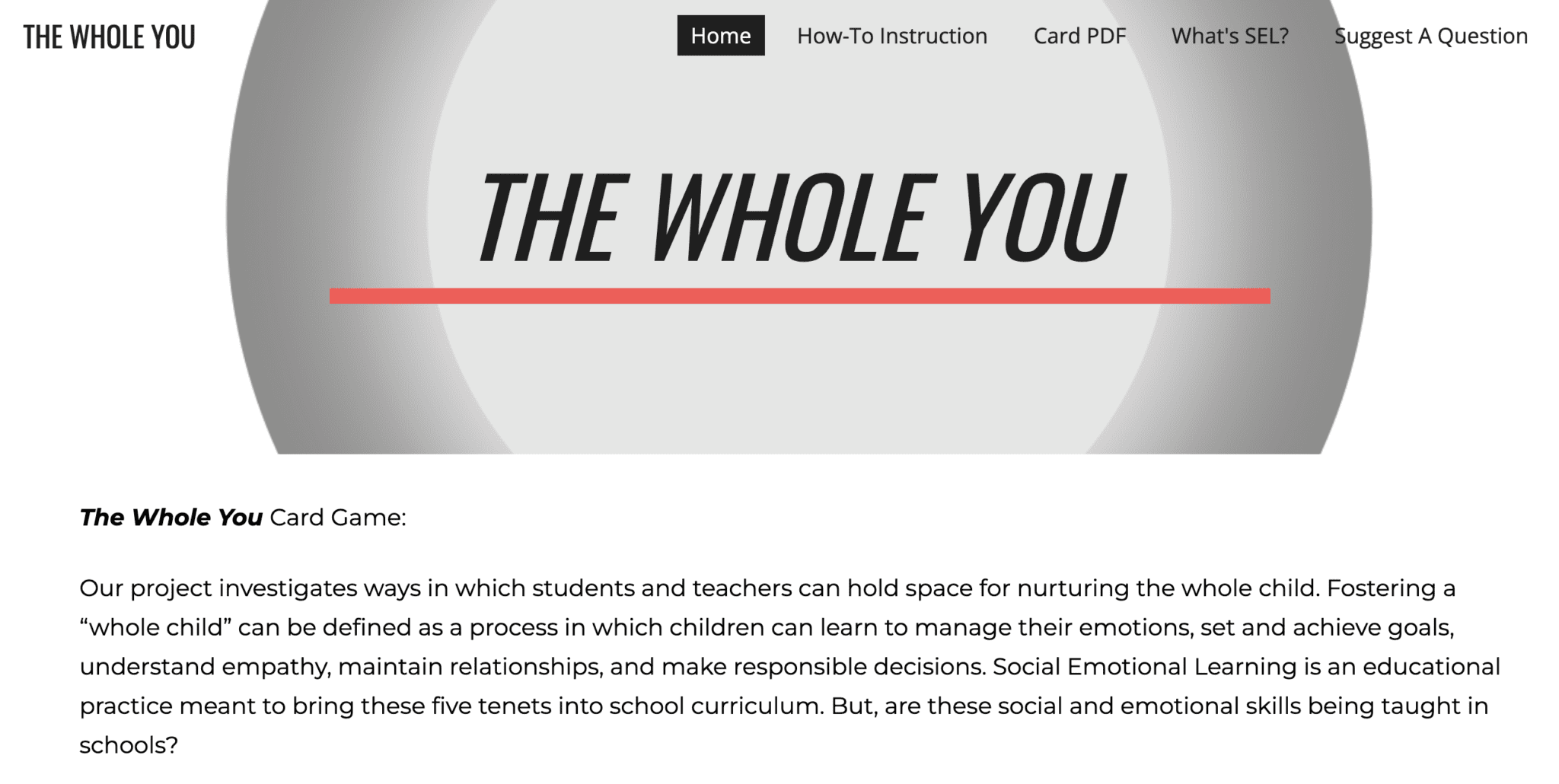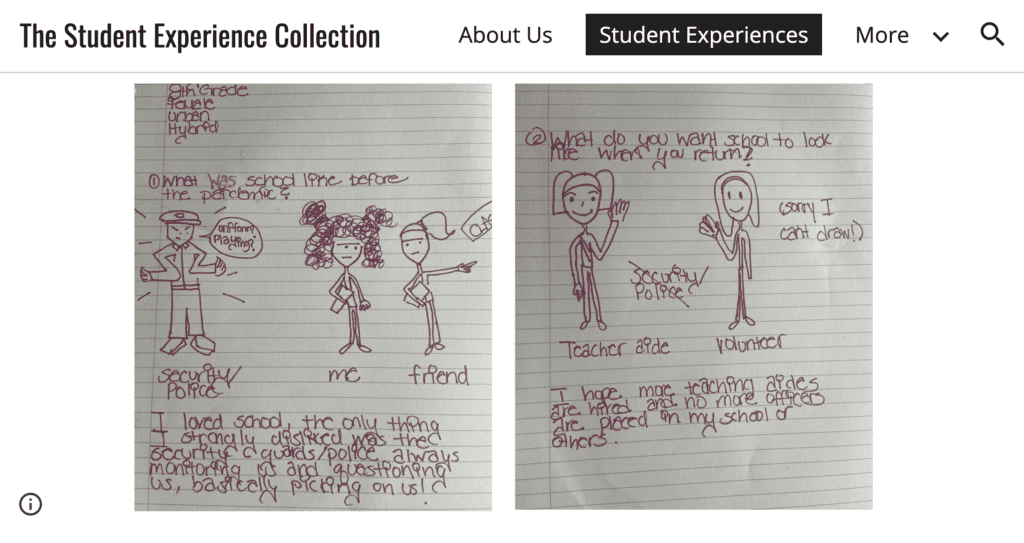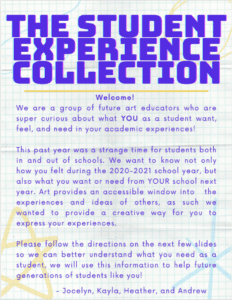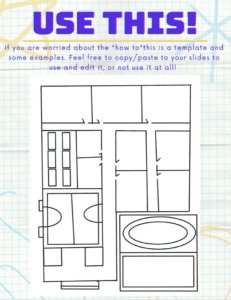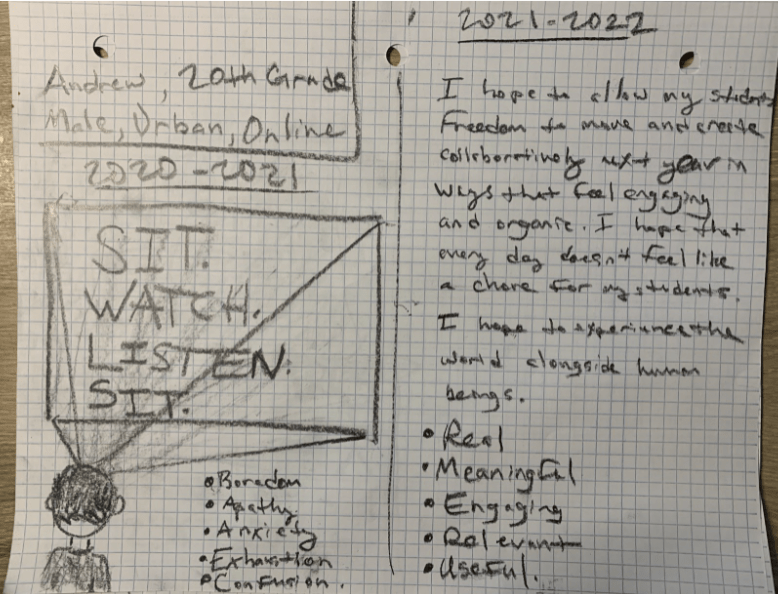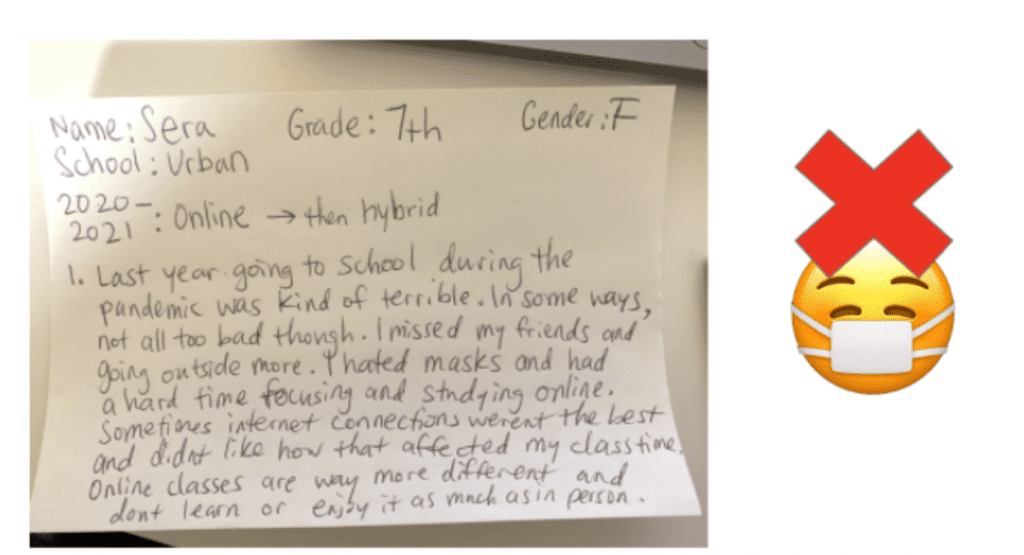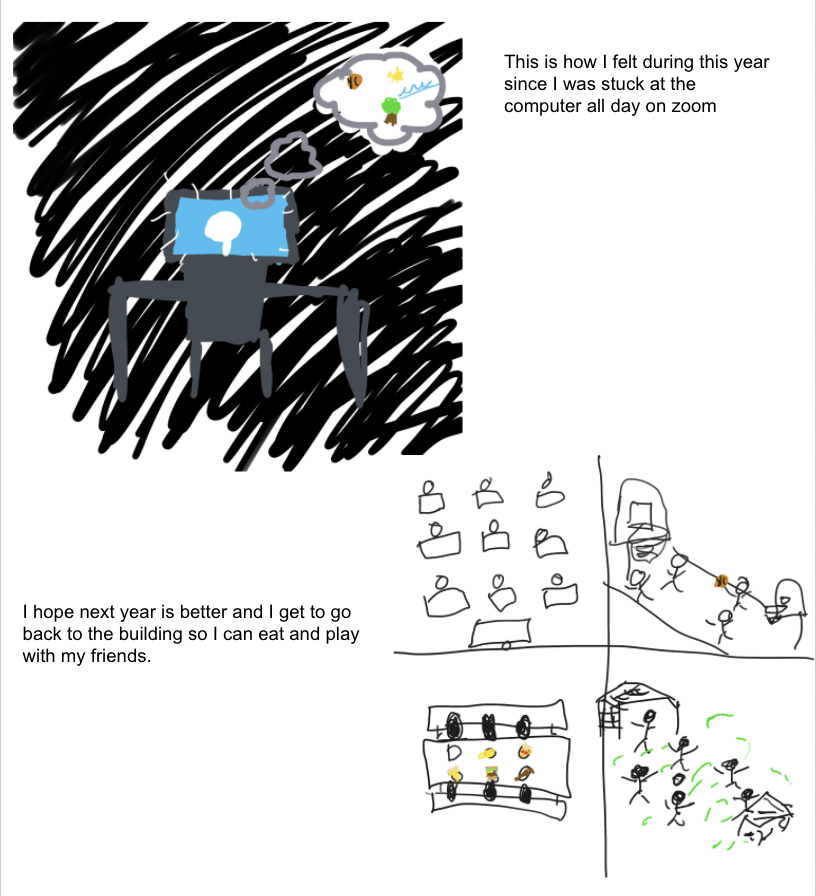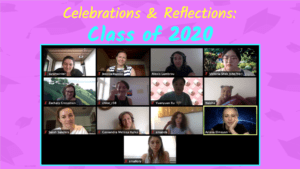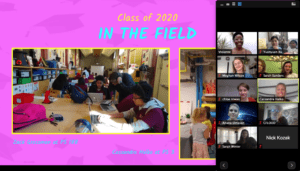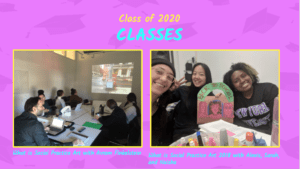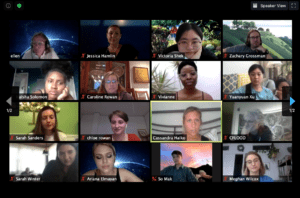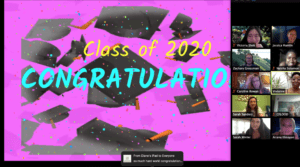How can teachers and students create an environment that is focused on the ‘whole child’ using the tenets of SEL?
Research and Final Project in Art+Education by Angela Lee, Melissa Khaimova, Giacomo Fortunato
Our project investigates ways in which students and teachers can hold space for nurturing the whole child. Fostering a “whole child” can be defined as a process in which children can learn to manage their emotions, set and achieve goals, understand empathy, maintain relationships, and make responsible decisions. Social Emotional Learning (SEL) is an educational practice meant to bring these five tenets into school curriculum. But, are these social and emotional skills being taught in schools?
Through research in our own schools (Stuyvesant High School, City-As-School High School and Frank Sinatra High School) we discovered that many students feel as though they do not learn these skills in their classes. Although there are many important skills and subjects to learn in high school, it is important to elevate the skills that many students gain from more “creative” courses, such as art and yoga. In our current time of 2022, many students lost a year of socializing due to the pandemic and virtual school.
We created a card game to encourage students and teachers to incorporate a “whole child” approach into their experiences in the classroom. The card game facilitates dialogue among students and teachers. In our card deck, there are six different colors, five of which represent the five tenets of Social Emotional Learning (SEL), and one ‘wild card’ category.
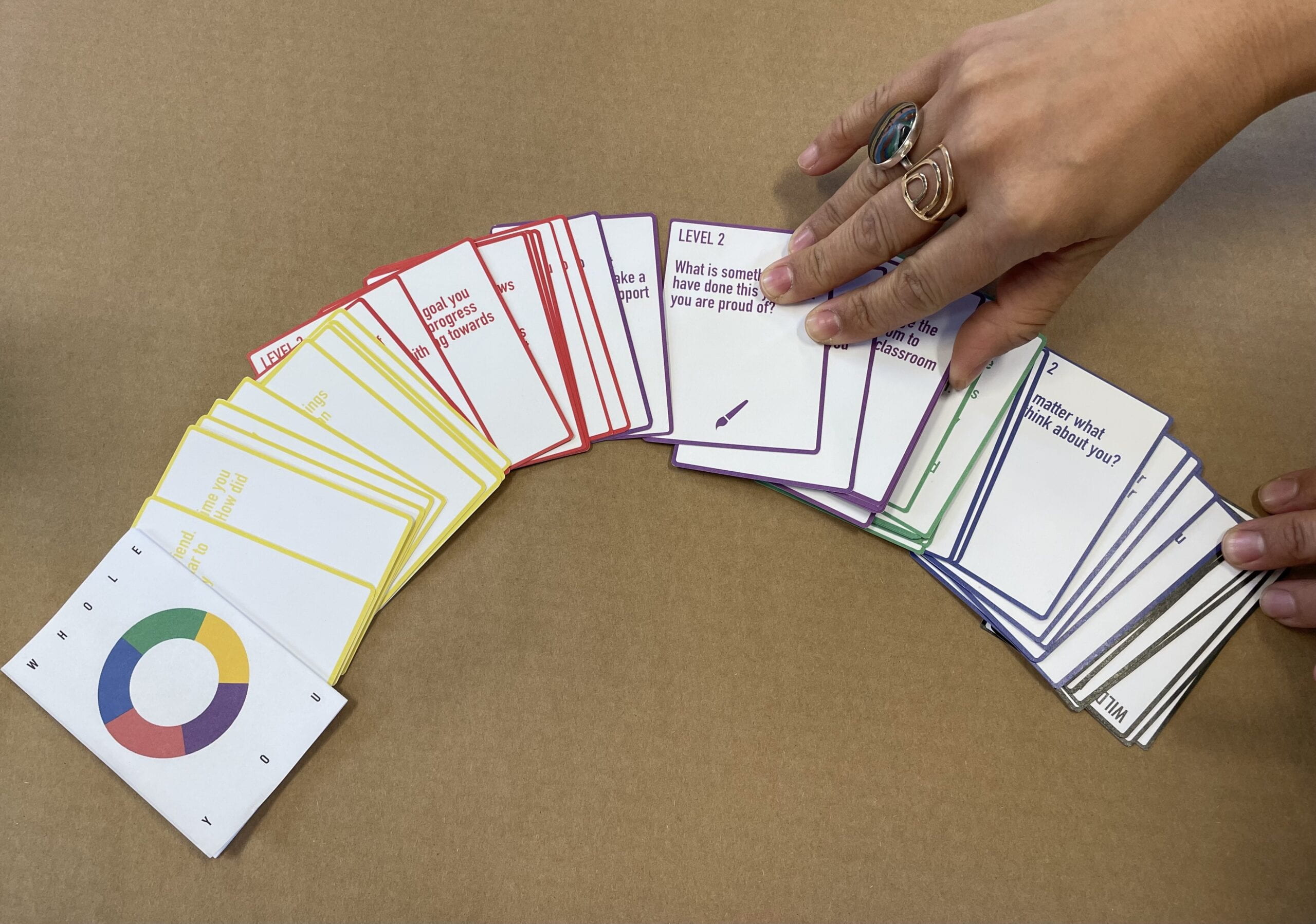
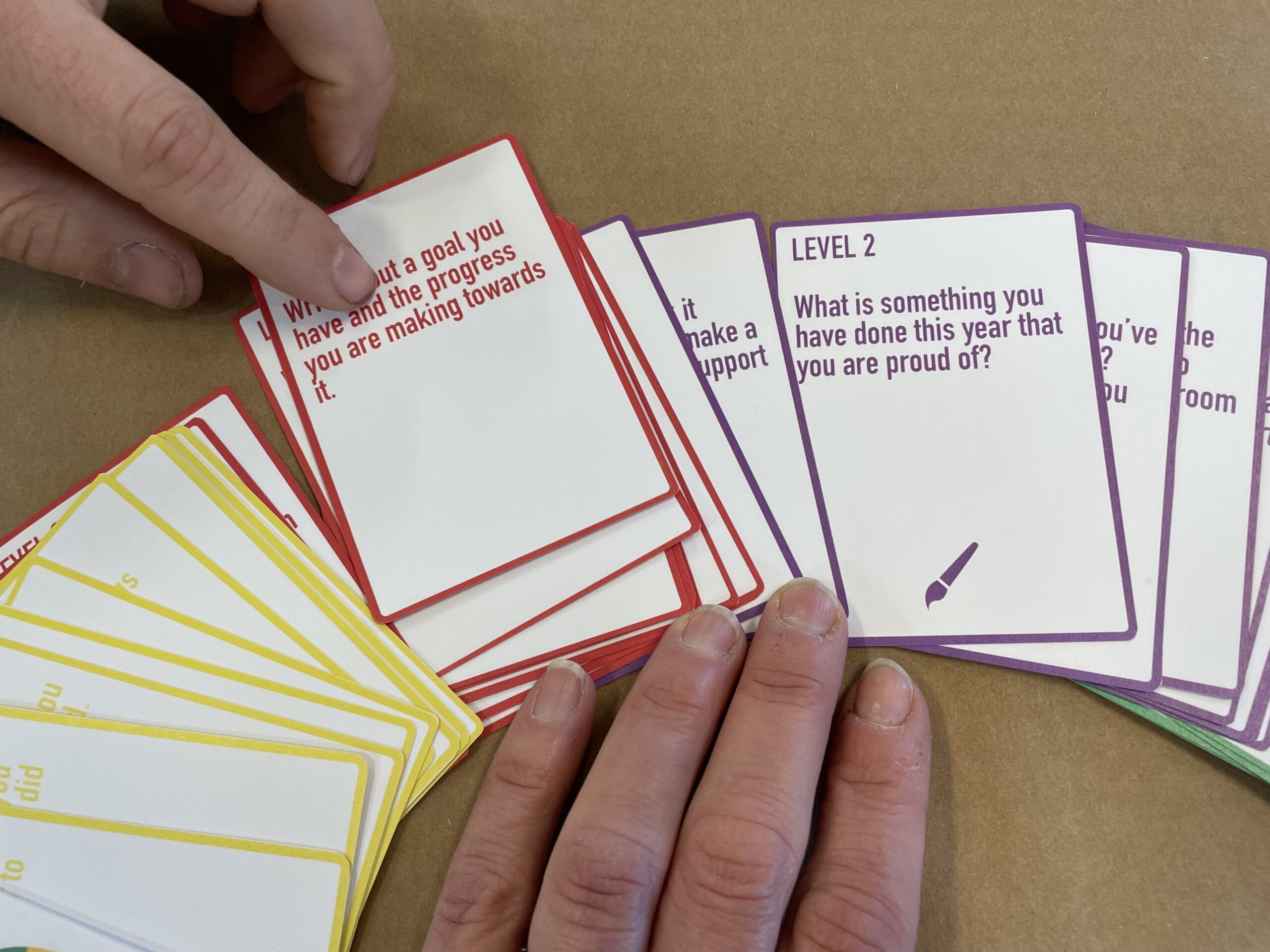
Yellow cards: Relationship skills – questions/prompts that help students critically think about how to maintain relationships, as well as the difference between good and bad relationships.
Red cards: Self-management – questions/prompts that help students learn how to manage their time, their emotions, their stress, etc.
Green cards: Social-awareness – questions/prompts that encourage students to think about themselves in relation to the society around them.
Blue cards: Self-awareness – questions/prompts that help students think about their purpose and their goals. Students will think critically about who they are and who they want to be.
Purple cards: Decision-making skills – questions/prompts that help students make good choices in any situation. Students are encouraged to do a lot of reflecting and thinking when discussing their experiences with decision-making.
Black/White cards: Wild card – a blank card that encourages students to come up with their own questions.
You can find out more about the game and download a deck to play here:
https://sites.google.com/nyu.edu/the-whole-you/home
